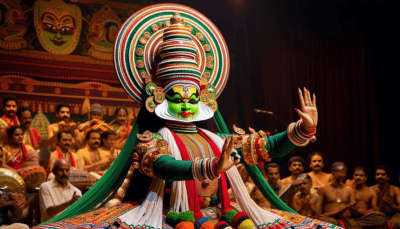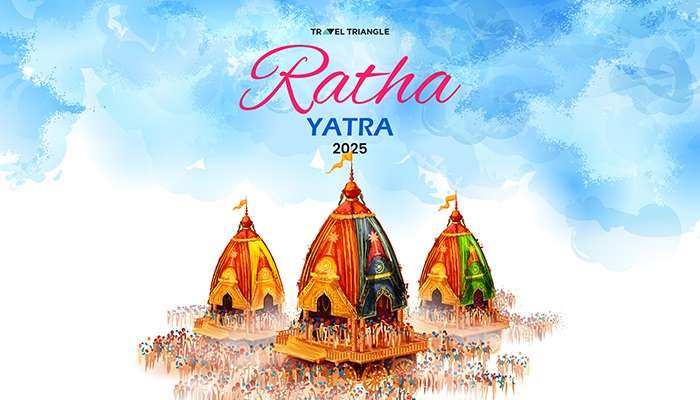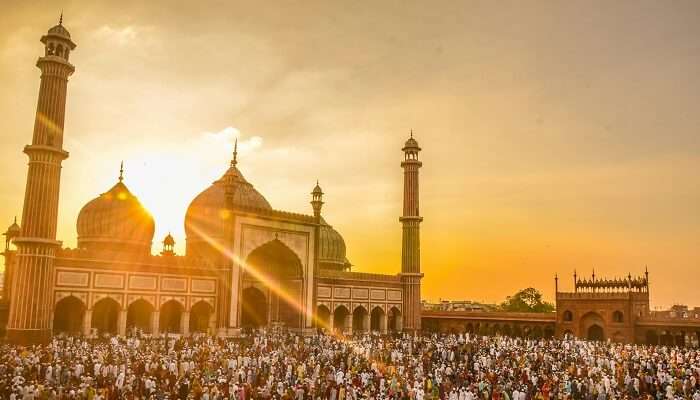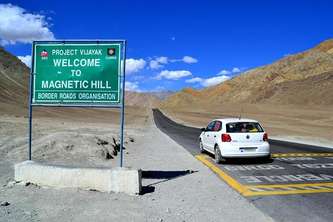When is Eid-ul-Adha 2026? Bakrid History, Rituals & Significance
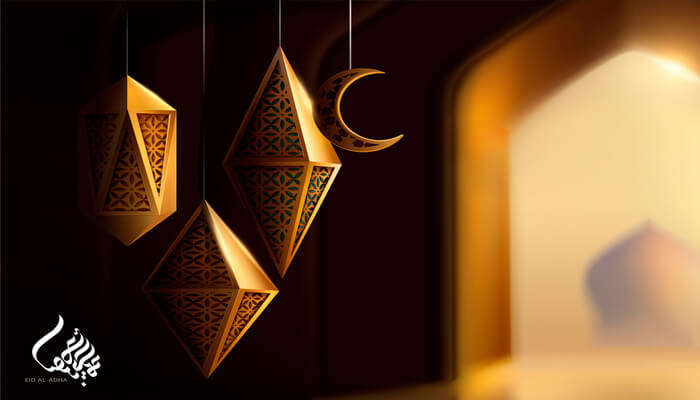
Muslims around the world are getting ready to celebrate one of their most important festivals—Eid ul-Adha. This festival is also called Bakrid or the Feast of Sacrifice. It will be celebrated in Saudi Arabia one day before it is observed in India.
When is Eid-ul-Adha?
Eid-ul-Adha, the second most important festival for Muslims, is celebrated with joy, prayers, and family gatherings. The day before Eid, on Friday, 6 June, Muslims will observe Arafat Day (also called Yaum al-Arafah). In 2025, Eid-ul-Adha is expected to be celebrated on:
| Country/Region | Eid Date (Expected) | Eid Prayer Time (Approx.) | Time Zone |
|---|---|---|---|
| Saudi Arabia | Friday, 6 June 2025 | 5:30 AM – 6:30 AM | Arabian Standard Time (AST) |
| UAE (Dubai, Abu Dhabi) | Friday, 6 June 2025 | 5:45 AM – 6:45 AM | Gulf Standard Time (GST) |
| India (Delhi, Mumbai) | Saturday, 7 June 2025 | 6:00 AM – 7:30 AM | Indian Standard Time (IST) |
| Pakistan (Lahore, Karachi) | Saturday, 7 June 2025 | 6:00 AM – 7:15 AM | Pakistan Standard Time (PKT) |
| Bangladesh (Dhaka) | Saturday, 7 June 2025 | 6:00 AM – 7:00 AM | Bangladesh Time (BST) |
| Indonesia (Jakarta) | Saturday, 7 June 2025 | 6:00 AM – 7:00 AM | Western Indonesia Time (WIB) |
| UK (London) | Friday, 6 June 2025 | 5:30 AM – 6:30 AM | British Summer Time (BST) |
| USA (New York) | Friday, 6 June 2025 | 6:00 AM – 7:00 AM | Eastern Daylight Time (EDT) |
| South Africa (Cape Town) | Friday, 6 June 2025 | 6:30 AM – 7:30 AM | South African Standard Time (SAST) |
| Australia (Sydney) | Friday, 6 June 2025 | 6:30 AM – 7:30 AM | Australian Eastern Time (AEST) |
Why the Dates Vary
According to the Islamic calendar, Eid-ul-Adha is observed on the 10th day of Dhul Hijjah, the last month of the Islamic calendar. Since the moon sighting can differ from place to place, the exact date of Eid changes across countries.
Also Read: Places to visit during Eid Holidays
Significance of Eid-ul-Adha: Why It’s Celebrated
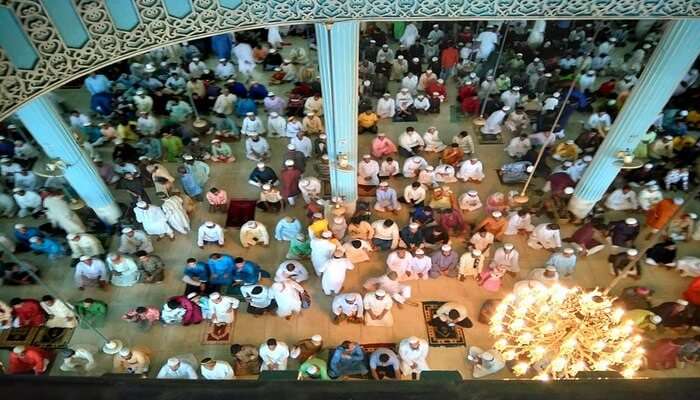
Eid-ul-Adha, also known as the Festival of Sacrifice, is one of the most important religious festivals for Muslims around the world. It honours the deep faith and obedience of Prophet Ibrahim (Abraham) towards Allah.
The Story Behind the Festival
According to Islamic belief, Prophet Ibrahim had a dream where Allah asked him to sacrifice his son, Ismail, to prove his devotion. Ibrahim was ready to obey, but just as he was about to make the sacrifice, Allah stopped him and replaced Ismail with a ram. This act showed Ibrahim’s complete trust and faith in God. To remember this great sacrifice, Muslims all over the world celebrate Eid-ul-Adha every year.
Tradition And Observances Of Eid Ul Adha
Eid-ul-Adha is a time of faith, sacrifice, generosity, and celebration. It brings families and communities together to reflect on spiritual values and care for others. Muslims around the world celebrate it with a mix of prayer, charity, sacrifice, and family gatherings.
Here are the main customs followed during this special festival:
| Tradition | What It Means / How It’s Observed |
|---|---|
| 1. Special Eid Prayers | Large congregational prayers are held in mosques or open grounds, usually in the early morning. |
| 2. Qurbani (Sacrifice) | Muslims sacrifice an animal (goat, sheep, cow, or camel) to honour Prophet Ibrahim’s devotion to Allah. |
| 3. Distribution of Meat | The meat from the sacrifice is divided into three parts – for the family, relatives/friends, and the needy. |
| 4. Dressing in New Clothes | People wear new or traditional attire to mark the occasion with joy and respect. |
| 5. Visiting Family & Friends | Families get together, share meals, and visit each other to celebrate and exchange greetings. |
| 6. Charity & Giving | Special focus is given to helping the poor, both through the distribution of meat and monetary donations (Sadaqah). |
| 7. Hajj Connection | Eid-ul-Adha also coincides with the Hajj pilgrimage, which takes place in Mecca during Dhul Hijjah. |
| 8. Saying Eid Takbeer | Muslims recite Takbeer (Allahu Akbar) before the Eid prayer and sometimes after, to glorify Allah. |
| 9. Cooking Festive Meals | Traditional dishes, such as biryani, kebabs, korma, and sweet treats, are prepared and shared. |
Disclaimer: TravelTriangle does not claim ownership of images on our blog unless noted. All visual content belongs to its respective owners. If you own any images and wish to have them removed, please contact us, and we will take action promptly. We are committed to giving proper credit to the original authors, artists, or photographers.

Sakshi Awasthi, an ardent traveler by heart is a Research Scholar from the University of Delhi. Unveiling the untold story of historical sites and encountering the impeccable beauty of nature, turned her to be a Travel Blogger. Currently, working as a Senior Content Writer with TravelTriangle.



